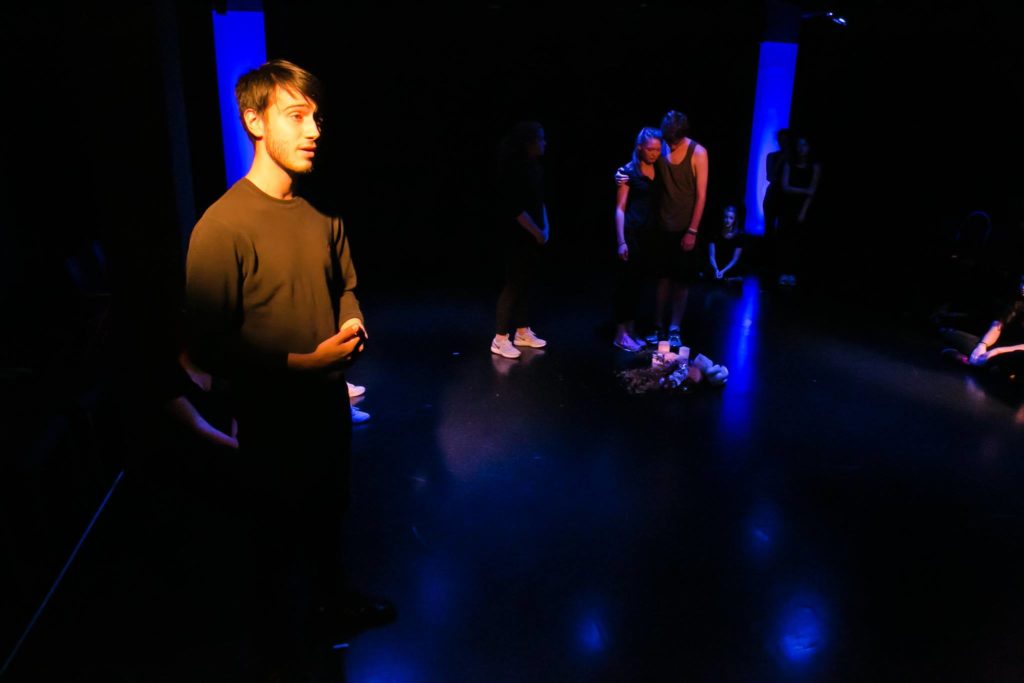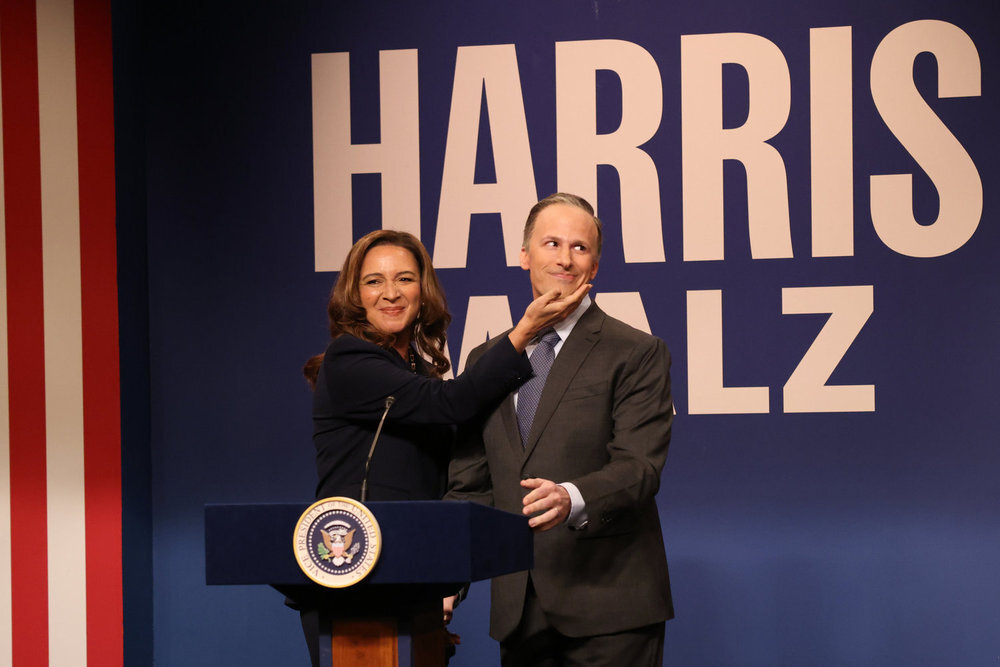Art has long been used as a coping mechanism – an organic way of expressing the joys and sorrows we have regarding our world. It seems the worse our global situation becomes, the need for more poignant and pensive art increases.
“Finish Line,” a new documentary play by Northeastern alumnus Joey Frangieh and playwright Lisa Rafferty, gives a voice to those affected by the 2013 Boston Marathon Bombing using the sharpest tool possible: Their own words.
“With media that is so filled with negativity and all the terrorist attacks and shootings, I wanted to create a piece that wasn’t about fear but about the good in the world and the people who do exceptional things,” Frangieh, who graduated as a theatre major in 2012, said. “The point of art is to reflect society and I thought we needed more stories about the good people.”
The one-act work is devised as a series of vignettes exclusively employing survivors’ own words, which are taken from 88 interviews conducted by the playwrights. It consists of experiential monologues, constructed conversations about the chaos of crises and musings on terrorism’s impact on the country. The docudrama premiered earlier this year through Frangieh’s own Boston Theater Company before it was brought to Northeastern for a one-week developmental workshop directed by theatre department chair Scott Edmiston.
“I think it’s really important for the theatre department to cultivate new work as well as to help shape a new generation of theatre artists,” Edmiston said. “This is a play that really responds to an event practically in our neighborhood and also the challenges we’re facing, with acts of terrorism erupting constantly around us. There’s the question of, ‘What is the responsibility we as theatre artists owe to our world?’”
The week-long process, during which Frangieh handed the reins to his work for the first time since its creation, culminated in two performances in Ryder Hall’s new Theatre Lab: An evening show on Sept. 24 and a matinee the following Sunday.
“This was the first time when I wasn’t really needed at every step of the process. I kind of hated it, but I also loved it,” Frangieh said. “Scott is brilliant and had a lot of new ideas and changes, so I told him to go for it. It might be my baby, but I knew Scott would take care of it.”
Edmiston, who Frangieh referred to as a “Boston theatre legend,” enlisted 17 students for the hefty task of playing characters that are not only alive and well, but – in many cases – still coming to terms with the events.
“I thought what was most important was finding my own way of presenting [my characters] in a believable way,” Monica Cole, a senior theatre major who played Ron Walls and Rekha Drew, said. “It was really interesting to tell these people’s stories because, who knows, they could’ve been sitting right there watching us.”
For many involved, the play provided a way of coming to terms with their own experiences, while for others, it provided new insights into the true nature of the event.
“There are all sorts of stories I would have never have guessed happened,” Edmiston said. “There’s a story about a doctor who heard that Tufts Medical Center had been blown up. Who would’ve known that? These are the kind of things you can’t make up and are actually more interesting than any fiction you could create.”
These interrelated stories create a moving portrait of the everyday heroes affected by a day often remembered for the wrongdoers. A quote by poet William Morris used by Edmiston to preface Sunday’s performance encapsulates both the spirit of production as well as the cathartic motivations behind dramatizing such a tragic episode in our world’s history:
“History has remembered the kings and warriors, because they destroyed,” Morris wrote. “Art has remembered the people, because they created.”
“Finish Line” will open in a new production at Boston’s Shubert Theatre on March 14, 2017.
Photo courtesy Northeastern University Department of Theatre









